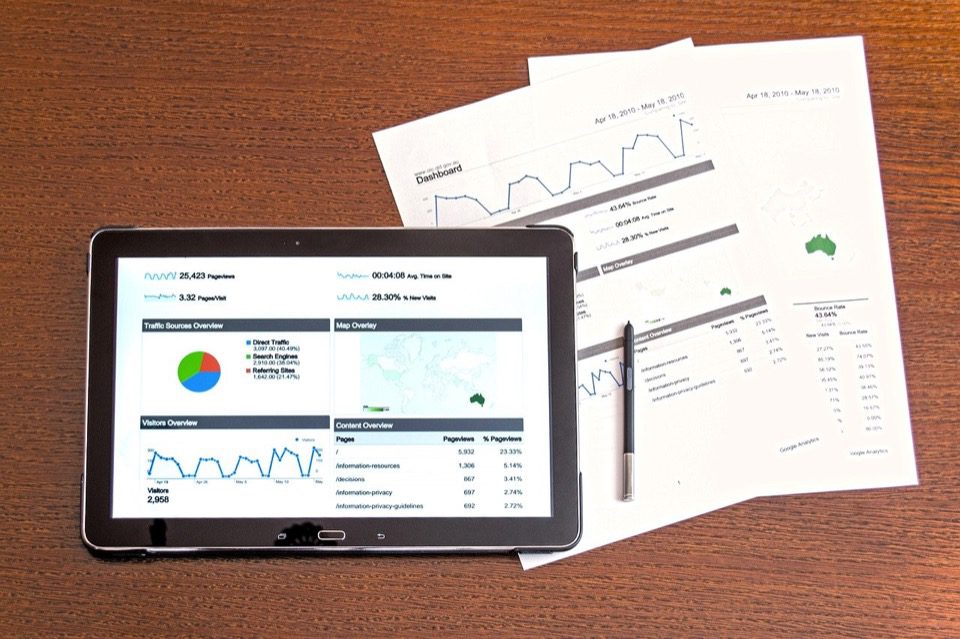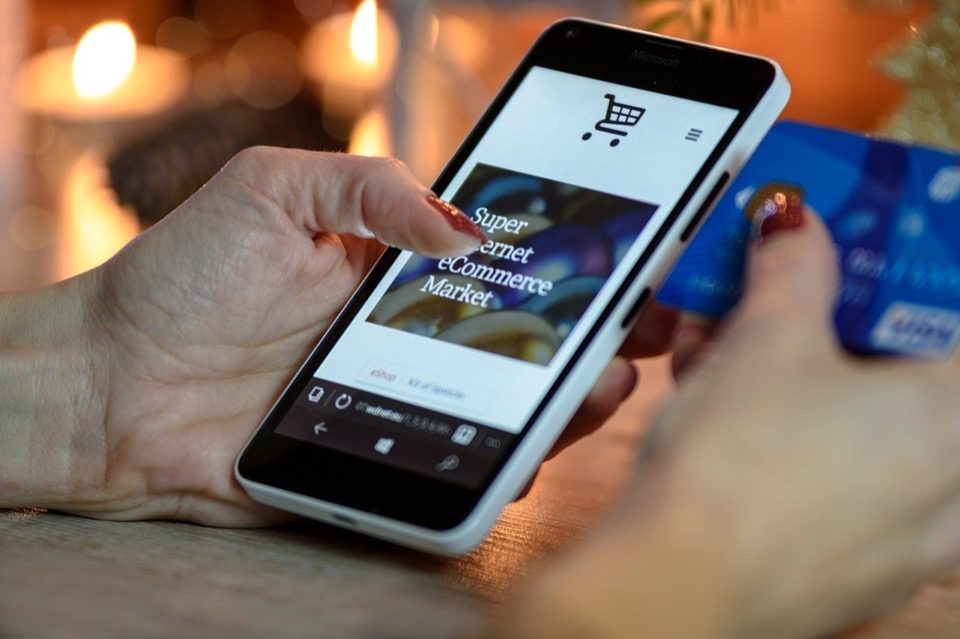Your store is the face of your business. You might have the snappy marketing in place, you might be bringing in potential customers with a USP that turns heads but if you don’t have a store good enough to seal the deal, you’ll be struggling to grow your business.
A cluttered web page can potentially lead to a loss of 95% when it comes to converting leads. It’s a subtle aspect of ecommerce and it’s certainly blindsided more than a few business owners looking to get a foot in the door with online shops, but having an appealing store is now a make-or-break factor in converting sales.
Create a Better User Experience
In design terminology, user experience is the overall experience customers have browsing your product, and it depends largely on how pleasing and easy it is to use. That might sound obvious, but growing a business is a struggle for a fair share of cluttered stores due to their inability to grab the reader’s attention and pull them in enough to make the sale.
According to Statista, 60% of consumers rate usability as an important design characteristic for an online shop. We agree, and we think that number should be way higher too. A better user experience has dual implications for your business:
- Emotional: A store that’s easy to navigate and use is likely to be favored by customers for repeat purchases in the future, simply out of sheer convenience. A better user experience kindles trust with potential shoppers and helps grow your business by building a brand that customers eventually go on to recognize as reliable, safe, and efficient.
With the tools that ecommerce has given us, it’s easier than ever to start a business, and the natural consequence of that is that it’s a crowded marketplace out there. Differentiating your business from the rest by building a unique brand is now a non-negotiable when it comes to sales. - Commercial: Streamlining your store and creating an appealing design has an exponential effect on sales. This is best explained by click-through-rate, or CTR. CTR measures the number of people who click on the ads you’ve put up for your business, or on links they might find on search engines or elsewhere.
That’s simple enough, but did you know that if those guests stay longer on your page after clicking on the links, that ends up pushing your business higher on search engine results, leading to even more growth in sales? It’s the best kind of cycle, and it’s one you’ll definitely want to capitalize on to meet the ambitious goals you’ve set for your business.
Leverage Analytics Platforms
Businesses, even small ones, generate massive amounts of data. You’ve got account information, identities, product details, marketing data, and then some. Analytics platforms take that colossal amount of data and turn it into meaningful statistics and metrics that let you know how your business is really doing, and what your customers (including the potential ones!) might be thinking when they browse your store. You’ll find that capitalizing on these metrics can be a tool for you to grow your business with precision, saving you both money and time.

Here are a few metrics that you might want to look out for:
- Average Revenue per User (ARPU): ARPU essentially tells a business how much money the average customer is bringing in. It’s a simple enough calculation, revenue divided by the total number of customers. The significance of ARPU lies in what it means to the business owner. If you’re seeing a rise in ARPU, it’s an indication that the average customer is spending more money than they used to before. This means you could slow down on the discounts for a while and push up your revenues.
- User Intelligence: This one comes in many forms, you might’ve heard of conversational intelligence as well. This is a general term for cutting-edge technology that fuels business growth by using machine learning and AI. We know, those buzzwords get thrown around quite a bit, but this one’s the real deal. This analytic tool records and analyses customer behavior, whether that’s how they use your store, or how long they use it, to give you actionable data to work with. Let’s say it notices that a large percentage of interested users end up clicking off your store at a certain point in your product pages. All you have to do now is optimize your pages to fix that issue.
As you can imagine, using analytic platforms (such as Google Analytics), lets you grow your business with an ROI that’s hard to beat.
Stay Informed About Industry Trends
If you’ve recently stumbled onto any retro websites on the Internet, one of those that are all HTML and nothing else, you know how a customer feels when they browse an out-of-touch store. The navigation’s clunky and doesn’t quite work, the search engine doesn’t come close to being accurate and the website takes a little too long to load. If your store strikes a potential customer as too alien or difficult to use, they simply won’t bother to.
As someone looking to improve their sales, it’s always a good idea to remember that the appeal of your store and your products are correlated. Having a modern design that conforms to the sensibilities of the new-age customer is always a good base to start from when you are looking to boost the growth of your business. This doesn’t mean that every store should look the same and originality is outdated, it’s rather about retaining certain core values that make life easier both for you and the shopper. This can include things like a snappy, upfront presentation of your products right on the homepage, or more functional features such as dark mode, or even integration with voice assistants like Alexa.
Solidify Your Security
Cybercrime in ecommerce shot up by 50% in 2020 from the previous year. With more and more businesses opening up shop online, some even shifting most of their operations there, web stores are prime real estate for cybercrime.

Growing a business is tough enough without having to look over your shoulder and worry about fraud regularly. Here’s what you can do:
- DDoS-proofing: Small businesses are often the most common and easiest targets of cybercrime, and a Distributed Denial of Service (DDoS) attack is a frequently used tool for cybercrime. DDoS attacks work on the basic premise that your website is hosted on a single server somewhere in the world. Hackers gain access to the I.P. of that server and proceed to overload it with information requests using botnets. DDoS attacks can put your business out of commission for days, if not weeks, causing your business to hemorrhage money you can’t afford to lose.
A reliable solution to this threat is the use of cloud-hosting services such as CloudFlare. Cloud-hosting your server means that your business is no longer hosted on a single vulnerable point of attack, but rather encrypted and distributed across servers and firewalls, making it much more difficult for attackers to take down your store. It might cost you a little more now, but it’s a worthwhile investment for the long-term growth of your business. - SSL Certificates: An SSL certificate is issued by a certificate authority. It’s an encryption-based security protocol, or in layman’s terms, a stamp of confidence certifying that the website really is what (or who) it claims to be. An SSL certificate authenticates that both the user and shop are genuine by initiating a ‘handshake’. It’s an easily recognizable feature as websites with SSL certificates will begin with HTTPS rather than HTTP.
Obtaining an SSL certificate helps in growing your business by building trust with potential customers. It’ll let them know that in the event that they choose to shop at your store, their private data, including names, addresses, credit card information, and D.O.B, are stored safely, and they won’t have to worry about having these stolen. You can get these fairly easily from your domain/cloud hosting provider.
According to CyberSecurityVentures, cybercrime will cost the world upwards of $10.5 trillion in revenue by 2025. As a business owner/marketer, it’s always good practice to get ahead of the curve with a pre-emptive security strategy for your business.
Boost Your Sales with Social Media
If your homepage or your store is the face of your business then you can consider your social media profile as the voice. An increasing number of small business owners are finding ways to grow leaps and bounds just by linking their business to an active social media account and maintaining a stable online presence there.

It doesn’t cost much to open up and run an Instagram or Facebook account for your business, and the ROI can be staggering. Statista found that business owners generated 69% more leads by using social media for their businesses. The reasons for this are straightforward but significant:
- Capitalizing on social media helps in building a unique brand for your business. Customers have an endless amount of options when it comes to choosing a store to buy products from, and they’re most likely to gravitate towards stores that manage to stand out and be memorable. When you sell online, you’re not just selling your product but also an image of your business, which can be your greatest tool if used right.
- You can grow your business with social media due to the sheer reach that it offers you as a business owner. With internet penetration steadily ramping up as tech evolves, an exponential number of people (read: potential customers!) are joining social media, and maintaining a presence there gives you access to all of them.
- A benefit that can sometimes fly under the radar is that social media allows you to diversify your revenue streams with the help of ads. Networking with other businesses and even accepting sponsors if available allow you to leverage other businesses to grow your own in an organic way that benefits both your sales and your search engine rankings.
- One of the best tools that social media offers businesses to grow is precision marketing. Platforms such as Youtube and Facebook create highly specific profiles of users, including topics they might be interested in, or products they might be looking to purchase. Advertising your product on these platforms lets you target a segment that’ll be more likely to give you returns on your investment than other avenues of advertising.
After you’ve been on the platforms for a while and grow your audience a fair bit, you’ll be able to let the customers do the work for you. Wildly successful businesses manage to leverage their wide audience to create content for them by capitalizing on popular trends, resulting in their business growing by word of mouth; can’t get more organic than that.
Make This Year Count
Optimizing your store to boost sales is simpler than it might sound, and brings in massive dividends for business owners in the long term. Take the first step towards legitimizing your business for the digital age with these simple tweaks and you’ll never look back.
BESTWEB helps entrepreneurs evolve their stores with the sole purpose of growing their businesses by using cutting-edge strategies that give your business the competitive advantage you’re looking for.

